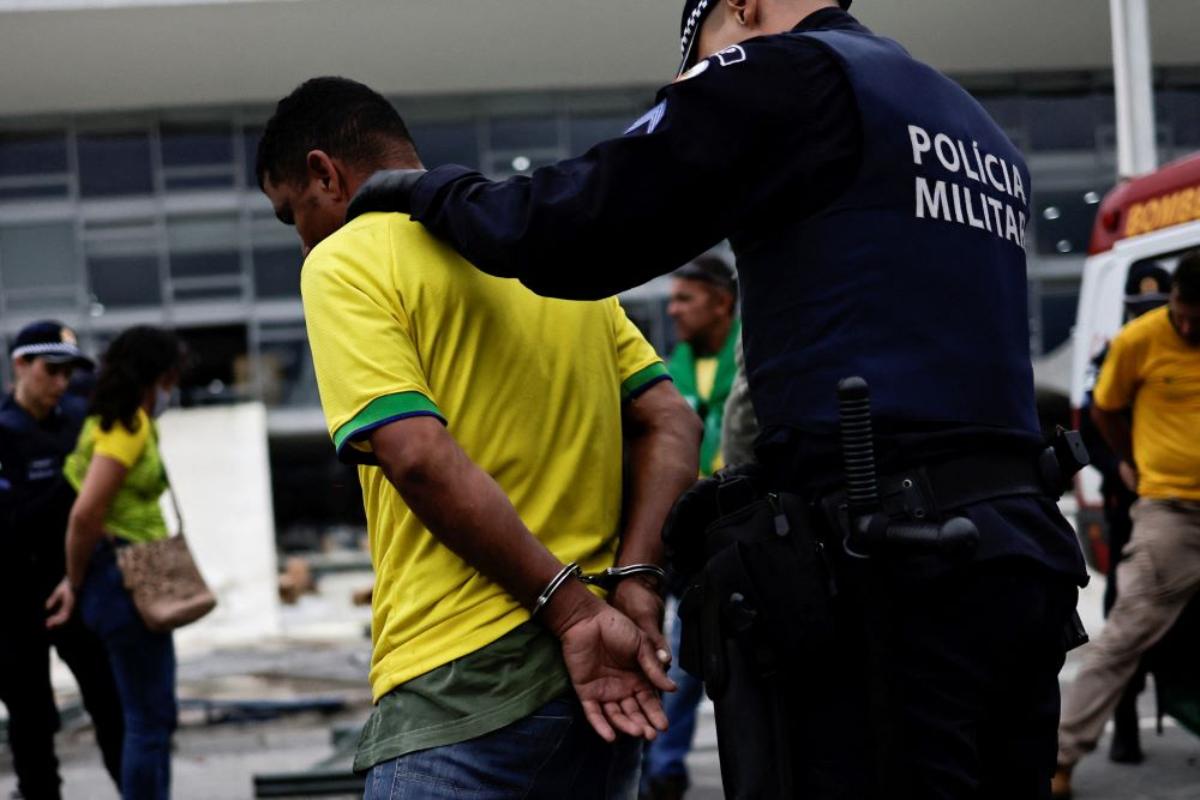Brazil Police to Use Facial Recognition on Rioters Despite Privacy Concerns
Conceitos essenciais
The author argues that despite concerns over bias and privacy violations, Brazilian police are moving forward with using facial recognition technology to identify rioters, raising alarms among experts about potential discrimination and surveillance.
Resumo
Brazilian police plan to implement facial recognition technology to identify protesters involved in recent riots, sparking fears of privacy violations and discrimination. The rollout of this surveillance system has raised concerns among human rights experts regarding transparency, data protection, and the potential targeting of marginalized communities. The use of facial recognition in Brazil has been criticized for its lack of effectiveness in meeting security objectives while posing significant risks to fundamental rights and privacy.
Customize Summary
Rewrite with AI
Generate Citations
Translate Source
To Another Language
Generate MindMap
from source content
Visit Source
www.context.news
Brazil turns facial recognition on rioters despite racism fears | Context
Estatísticas
Since 2019, 90% of people arrested using facial recognition in Brazil were Black.
Rio de Janeiro's former governor rolled out facial recognition tools aiming to curb crime but showed no reduction in crime rates.
Of the 10,000 cameras installed for surveillance in Rio de Janeiro, 40% have facial recognition capabilities.
Citações
"As a tool of mass surveillance, facial recognition is an expedited patchwork solution that demonstrably fails time and time again at meeting the security objectives it purports to enable." - Matt Mahmoudi
"I worry that these cameras will be used against the young men in the favela - many are already frequently targeted by the police on false grounds." - Jamila
"There's no indication that they help reduce crime or that they improve daily policing." - Pablo Nunes
Principais Insights Extraídos De
by Leonardo Coe... às www.context.news 02-21-2024
https://www.context.news/surveillance/brazil-turns-facial-recognition-on-rioters-despite-racism-fears
Perguntas Mais Profundas
How can the Brazilian government address concerns over privacy violations and discrimination associated with facial recognition technology?
To address concerns over privacy violations and discrimination linked to facial recognition technology in Brazil, the government must take several steps. Firstly, there should be transparent regulations governing the use of such technology, including clear guidelines on data collection, storage, and sharing. Public consultations should be held to gather input from various stakeholders, ensuring that the implementation of facial recognition is done ethically and with respect for individual rights.
Moreover, mechanisms for oversight and accountability need to be established to monitor how facial recognition is being used by law enforcement agencies. Independent bodies should regularly review the practices surrounding this technology to prevent misuse or abuse. Additionally, there should be strict penalties in place for any breaches of privacy or discriminatory actions resulting from facial recognition systems.
Furthermore, investing in bias mitigation techniques within these technologies is crucial. Ensuring that algorithms are trained on diverse datasets representing all segments of society can help reduce biases against marginalized communities. Regular audits of these systems should also be conducted to identify and rectify any discriminatory patterns that may emerge.
What are some alternative methods for law enforcement agencies to ensure public safety without compromising individual rights?
Law enforcement agencies have alternative methods at their disposal to ensure public safety without infringing upon individual rights through invasive surveillance like facial recognition. Community policing strategies focused on building trust between officers and residents can foster safer neighborhoods without resorting to intrusive technologies.
Investing in community engagement programs that address underlying social issues contributing to crime can lead to long-term solutions rather than relying solely on surveillance measures. By working collaboratively with local communities, law enforcement can gain valuable insights into potential threats while respecting individuals' right to privacy.
Implementing data-driven approaches that prioritize transparency and accountability can also enhance public safety without sacrificing civil liberties. Utilizing predictive analytics based on anonymized data sets rather than personal information allows authorities to proactively address criminal activities while safeguarding individuals' privacy rights.
Additionally, enhancing officer training in de-escalation techniques and conflict resolution skills can help prevent unnecessary confrontations or escalations that could jeopardize both public safety and individual freedoms.
How can global efforts against algorithmic discrimination support marginalized communities affected by surveillance technologies?
Global efforts against algorithmic discrimination play a vital role in supporting marginalized communities impacted by surveillance technologies like facial recognition systems. One key way is through advocating for regulatory frameworks at an international level that promote fairness and equity in the development and deployment of such technologies.
Collaborative initiatives between governments, tech companies, civil society organizations, and academic institutions can work towards creating standards for ethical AI usage across borders. These standards would aim at preventing discriminatory outcomes arising from biased algorithms targeting vulnerable populations disproportionately affected by surveillance practices.
Furthermore, raising awareness about algorithmic bias among policymakers and the general public helps shed light on the potential harms faced by marginalized groups due to flawed technological implementations. Education campaigns highlighting instances of algorithmic discrimination serve as a catalyst for change towards more inclusive digital policies globally.
Supporting research endeavors focused on identifying biases within AI systems aids in developing effective mitigation strategies tailored specifically towards protecting marginalized communities from unwarranted scrutiny or harm caused by faulty algorithms operating within surveillance infrastructures.
0
